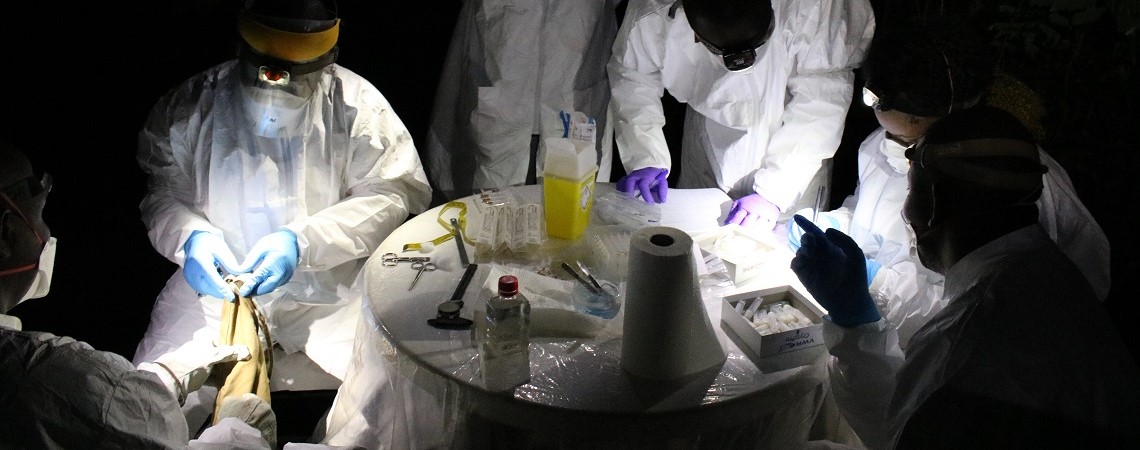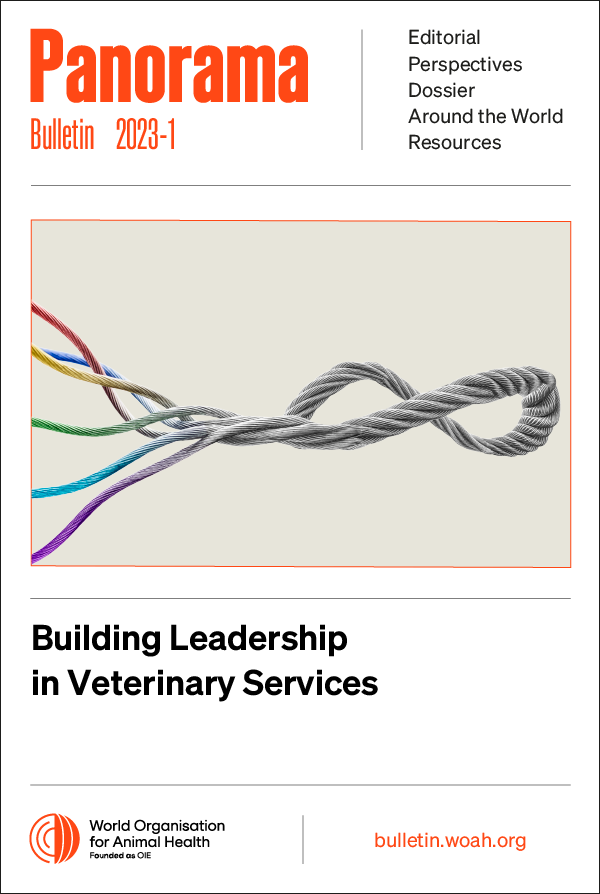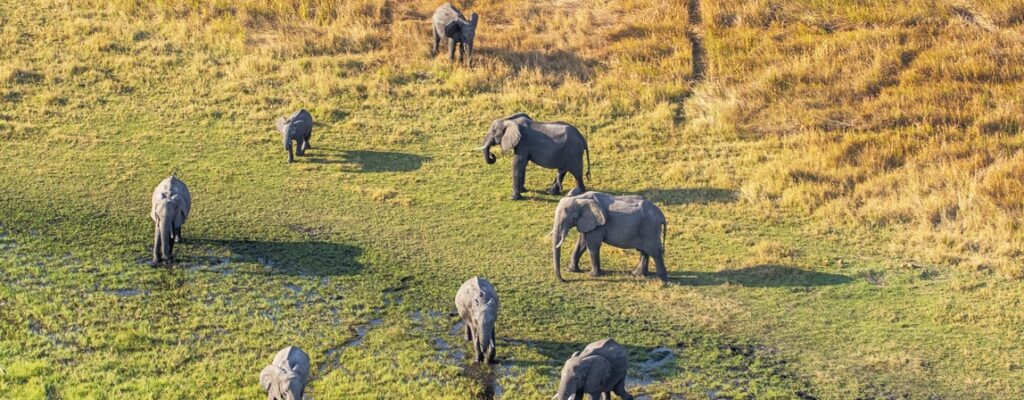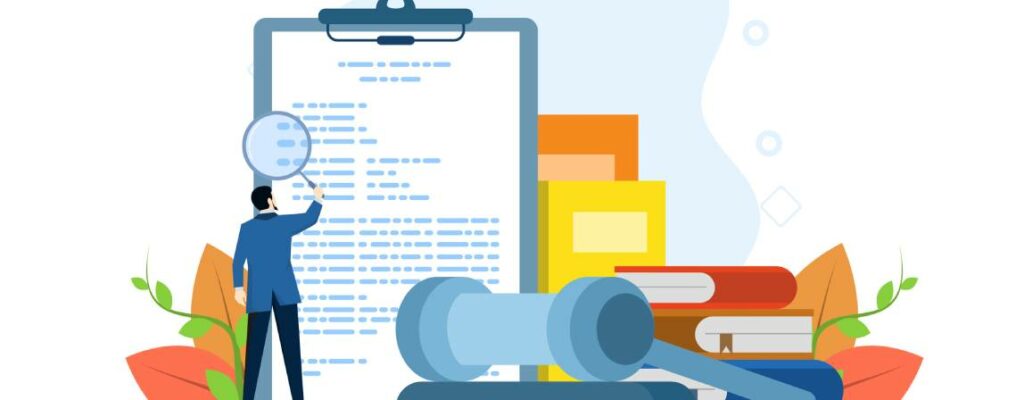Perspectives Posted on 2023-03-01 16:12:14
Opinions and strategies
Building capacities for wildlife health
Keywords
Authors
Sophie Muset (1)*, David Sherman (2), Nadège Leboucq (2), Laure Weber-Vintzel (3), Mario Ignacio Algüerno (2) & Maud Carron (4)
(1) Preparedness and Resilience Department, World Organisation for Animal Health (WOAH).
(2) Capacity-Building Department, World Organisation for Animal Health (WOAH).
(3) WOAH Observatory.
(4) Canadian Food Inspection Agency (CFIA), Montreal, Canada.
Corresponding author: S. Muset.
Through its Wildlife Health Framework, the World Organisation for Animal Health (WOAH, founded as OIE) aims to strengthen the capacity of VS and their partners by improving their disease surveillance and management systems. The range of well-established WOAH flagship VS support programmes, such as the Laboratory Twinning Programme and the Performance of Veterinary Services (PVS) Pathway, allows us to carry out a portfolio of scalable capacity-building approaches.
One initiative, in particular, involves a global review of veterinary legislation to examine the existing legal mandates for VS to address wildlife diseases and ask what further legal elements are required to ensure that these mandates are being fulfilled. This project takes place under the PVS Veterinary Legislation Support programme.
The Ebola Virus Disease Capacity Building and Surveillance Project (EBO−SURSY), which focuses on strengthening early detection systems for wildlife in West and Central Africa to prevent outbreaks of Ebola virus disease and four other viral haemorrhagic fevers, is another key example of WOAH’s new wildlife activities.
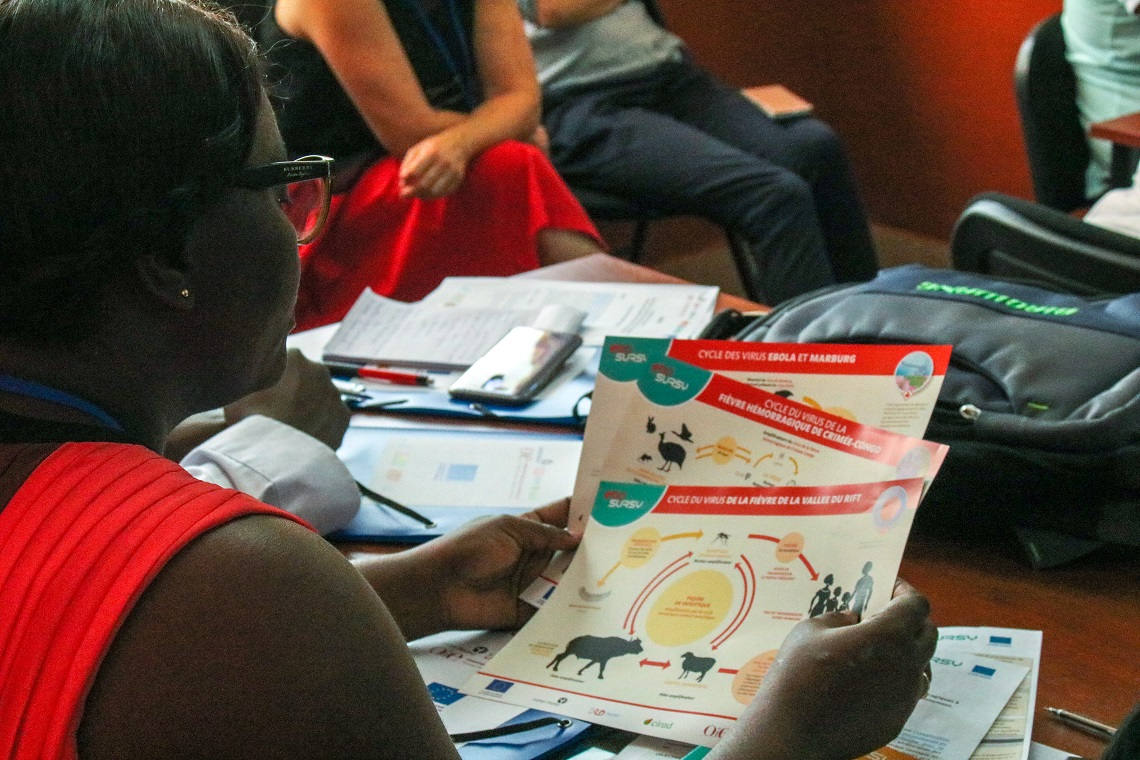 © World Organisation for Animal Health / S. Muset |
Participatory workshops targeting WOAH National Focal Points in Africa were also designed to develop multisectoral national protocols for wildlife surveillance. They include specially designed learning tools, such as the card game with a serious purpose, ‘Alerte’, to raise awareness about the role of community-based wildlife surveillance systems. In addition, PhD and Masters students are working alongside Veterinary and Wildlife Service professionals in multisectoral scientific activities, benefiting from ongoing training in the field and in the laboratory. This programme should strengthen the abilities of future animal health professionals, as well as increasing the capacity of national institutions to reinforce their surveillance systems. A systematic evaluation of the long-term success of these initiatives has been carried out.
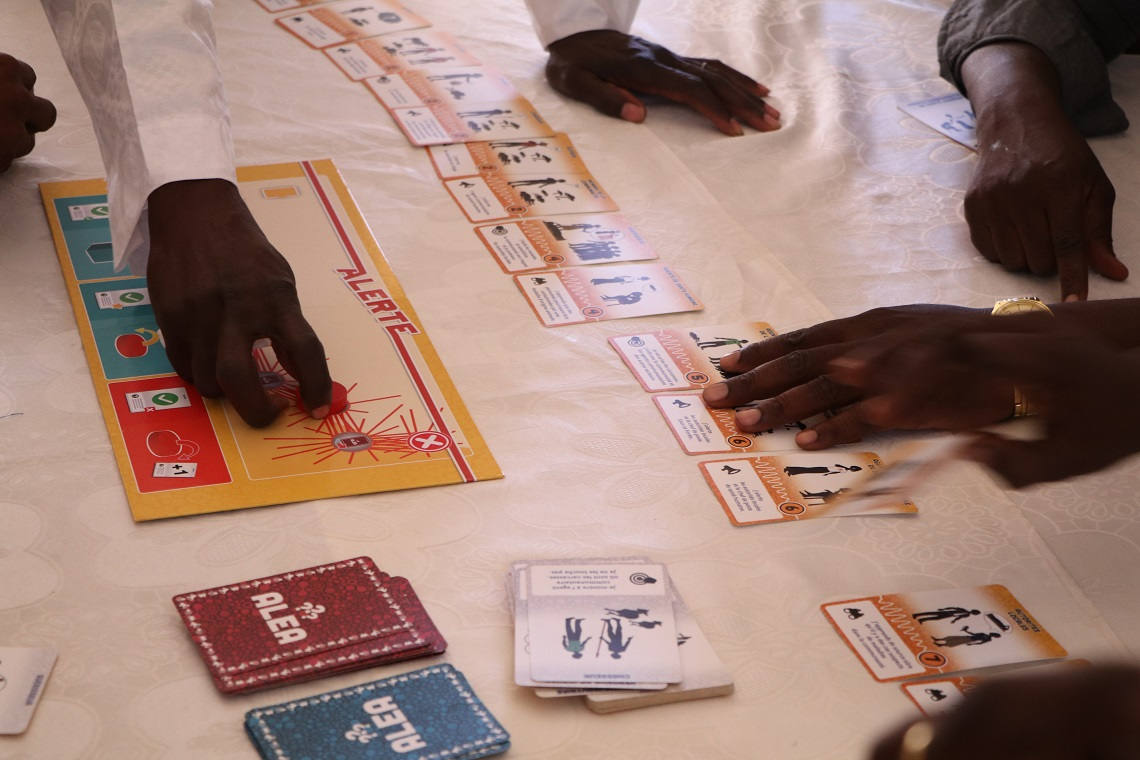 |
Other projects are being piloted, e.g. in South-East Asia, where an integrated approach to disease prevention and control is being implemented. This takes the form of a study of wild pig distribution, their interactions with domestic pigs and the consequent risk factors for disease spread between wild and domestic populations. In addition, training in surveillance, biosecurity and One Health is being offered to community animal health workers and forest rangers. This project is taking place in villages close to National Parks and involves a range of stakeholders, including local communities, to ensure coordinated action at all the points where domestic animals, wild animals and human beings interact.
In addition to in-person training, WOAH has carried out several global e-training webinars for World Wildlife Day and Wildlife Focal Points. More broadly, WOAH is putting a lot of effort into developing a robust and consistent Competency-based Training Framework, featuring a specific competency package dedicated to wildlife health issues. Several e-modules on wildlife surveillance and trade will also be available on the WOAH training portal in 2023–2024.
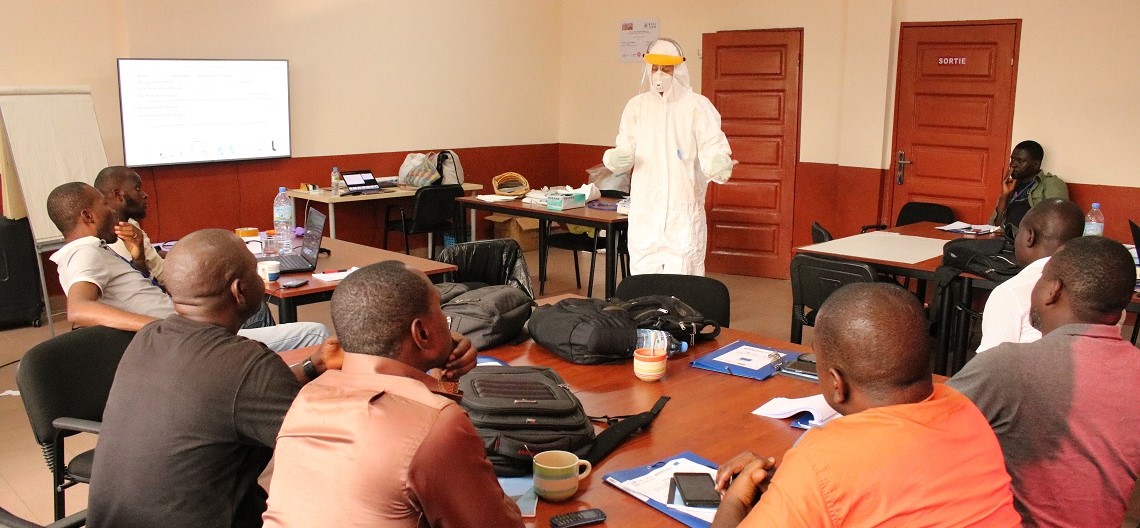 |
| Equipping Regions with Collaborating Centers in wildlife health A Laboratory Twinning project is currently under way between the WOAH Collaborating Centre Consortium for Wildlife (USA/Canada) and Mahidol University (Thailand) to assist in formally establishing a WOAH Collaborating Centre in Wildlife Health and Biodiversity in Thailand. This Centre will be the first of its kind in the Asia-Pacific region, and is aimed at reinforcing support for WOAH Members in addressing wildlife health issues. |
| Ebola alert in Guinea: early investigations in wildlife and laboratory diagnostic capacity When Ebola virus disease broke out in Guinea in 2021, a wildlife investigation mission was rapidly and efficiently deployed. The multisectoral team involved the National Directorate of Veterinary Services (DNSV); the Guinean Office of Parks and Reserves (OGUIPAR); the Guinean Centre for Infectious Disease Research and Training (CERFIG); the Wild Chimpanzee Foundation (WCF); the French Agricultural Research Centre for International Development (CIRAD); the French National Research Institute for Sustainable Development (IRD); and the Robert Koch Institute (RKI, Germany). Such a rapid intersectoral response was possible thanks to the activities carried out by the EBO−SURSY Project in Guinea since 2017. Continuous training of agents from national institutions, both in the laboratory and in the field, combined with solid partnerships between institutions at all levels, meant that highly qualified field teams could be deployed quickly. This rapid response was also triggered during the COVID-19 pandemic. The ability to keep improving our response times to outbreak alerts is vital if we want to be able to control similar threats to animal and human health in the future. |
https://doi.org/10.20506/bull.2023.1.3380




